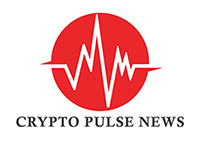Introduction
Algorand (ALGO) is a high-performance blockchain designed to provide fast, secure, and decentralized transactions while maintaining scalability. Founded by renowned cryptographer Silvio Micali in 2017, Algorand aims to solve the blockchain trilemma—achieving decentralization, security, and scalability without compromise. With its unique Pure Proof-of-Stake (PPoS) consensus mechanism, Algorand is widely regarded as one of the most efficient blockchain networks for decentralized applications (dApps), financial services, and enterprise solutions.
What is Algorand?
Algorand is a Layer-1 blockchain built to support smart contracts and decentralized applications while maintaining near-instant transaction finality. Unlike traditional Proof-of-Work (PoW) blockchains like Bitcoin, Algorand does not require mining, making it environmentally friendly and highly efficient.
The Algorand network is designed for:
✅ Fast Transactions – Transactions are finalized in less than 4.5 seconds.
✅ Scalability – Can handle up to 10,000 transactions per second (TPS).
✅ Low Fees – Transaction costs are fractions of a cent.
✅ Security – Uses cryptographic randomness to select validators, making it resistant to attacks.
How Does Algorand Work?
1. Pure Proof-of-Stake (PPoS) Consensus
Unlike traditional Proof-of-Stake (PoS) models that favor wealthy stakeholders, Algorand’s PPoS ensures fairness by randomly selecting validators based on the proportion of ALGO tokens they hold. This randomness prevents centralization and ensures security.
2. Smart Contracts and dApps
Algorand supports Algorand Smart Contracts (ASC1s), which are highly efficient and scalable. These smart contracts power:
- Decentralized Finance (DeFi) applications
- Tokenized assets and NFTs
- Supply chain management
- Cross-border payments
3. Algorand Standard Assets (ASA)
Algorand allows users to create and manage fungible and non-fungible tokens (NFTs) natively on the blockchain. ASA is widely used for stablecoins, digital collectibles, and enterprise tokens.
4. Post-Quantum Security
Silvio Micali designed Algorand with post-quantum cryptography in mind, ensuring the network remains secure even against future quantum computing threats.
Why is Algorand Unique?
⚡ High-Speed Transactions
Algorand processes transactions faster than Ethereum and many other blockchains, making it ideal for financial applications.
♻️ Environmentally Friendly
Unlike energy-intensive PoW blockchains, Algorand is a carbon-negative network, meaning it offsets more carbon than it produces.
🌍 Real-World Adoption
Many institutions and governments are leveraging Algorand for CBDCs (Central Bank Digital Currencies), tokenized assets, and global financial applications. Some notable projects include:
- El Salvador’s Bitcoin bonds
- Koibanx’s Latin American blockchain solutions
- USDC and USDT stablecoins on Algorand
The ALGO Token
The ALGO token is the native cryptocurrency of the Algorand network. It is used for:
🔹 Transaction fees
🔹 Staking and governance
🔹 Smart contract execution
Challenges and Future Outlook
Challenges
- Competition from Ethereum, Solana, and Avalanche
- Adoption still growing despite strong technology
- Dependence on ecosystem expansion for long-term success
Future Prospects
Algorand is continuously improving its network with:
✅ State proofs for cross-chain interoperability
✅ Better scalability solutions
✅ More enterprise partnerships
Conclusion
Algorand is a highly scalable, secure, and eco-friendly blockchain that is well-positioned for future adoption in decentralized finance and enterprise applications. With its fast transaction speeds and low fees, Algorand remains one of the most promising blockchain projects.
🚀 Stay updated with the latest Algorand news at Crypto Pulse News!

